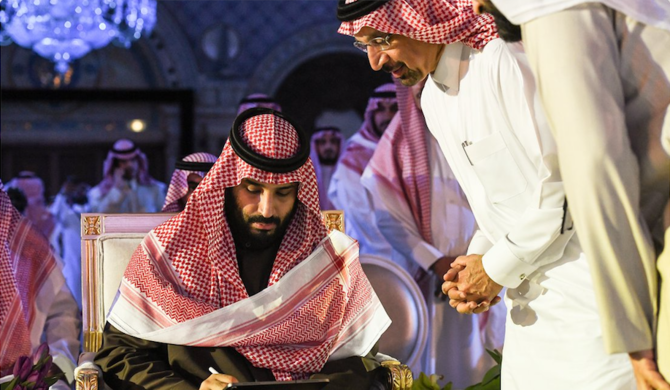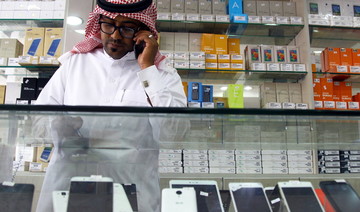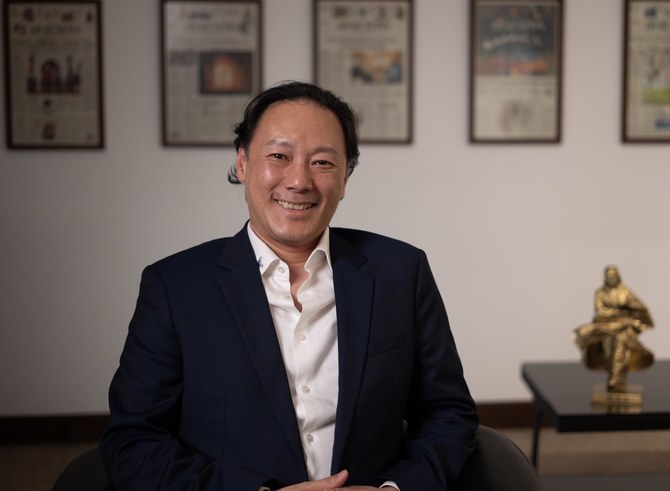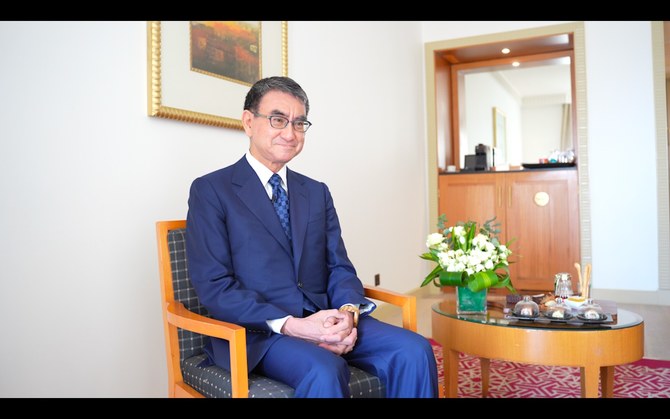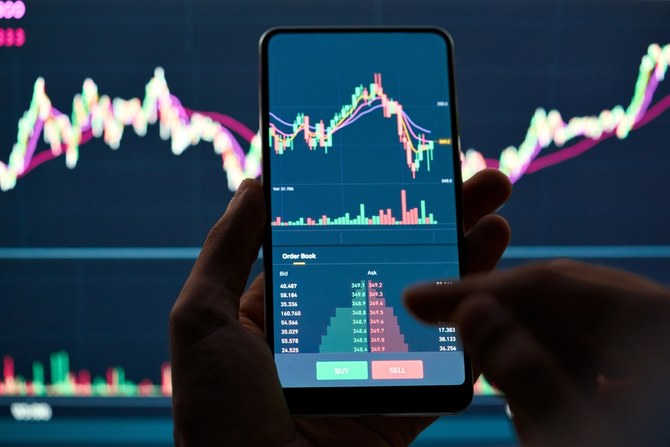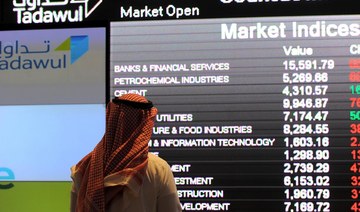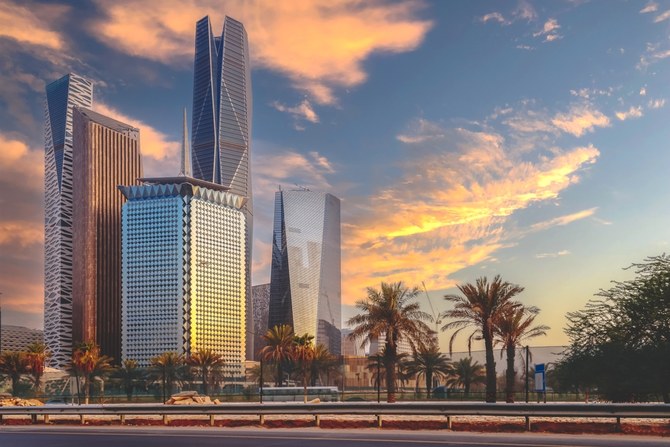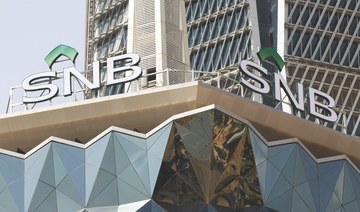RIYADH: Leading architects of Saudi Arabia’s economic transformation will gather on Monday in Riyadh to set out the next steps in the Kingdom’s development. Follow Arab News' live coverage below...
20:15 - The Minister of Energy, Industry and Mineral Resources, Khalid Al-Falih inaugurated the TAADIN (Mining) Platform to serve mining investment and launched the pilot version of the National Geological Database to serve investors in mining fields.
The move coincides with the official launch of the National Industrial Development and Logistics Program (NIDLP), one of the most prominent programs toward achieving the Kingdom’s Vision 2030.
In statement to Saudi Press Agency (SPA), Al-Falih said, “since the approval of the Kingdom’s mining strategy, we have placed our interest in the mining sector, with its unlimited opportunities, to exploit diverse mineral resources in the Kingdom.”
He said the project emphasizes the need to provide the appropriate investment environment, in addition to overcoming all obstacles to the private sector and investors from inside and outside the Kingdom.
He said that the TAADIN platform aims to facilitate issuance and renewal of mining licenses, inquire about mining sites available in the Kingdom, improve the investor experience and link the investor to electronic systems, in order to cope with the digital transformation plan targeting the mining sector.
19:30 - The NIDLP is a historic event in the march of national development, affirmed the president and chief executive officer of Saudi Aramco.
In a press statement, Amin Nasser stressed that the Kingdom will witness a new era for industrial and economic prosperity due to the Kingdom’s unique strategic location as a hub among three major continents.
He added that this program invests in the Kingdom’s global energy power in order to generate more investment opportunities as well as national and international partnerships.
“The National Industrial Development and Logistics Program is a comprehensive umbrella that integrates the efforts of many strategic sectors to establish an advanced future system that will enable the Kingdom to become a global leading player in the fields of infrastructure, industry, mining, logistics and supply chains by 2030.
“Through strengthening the Kingdom’s status in the energy field, the program will achieve a qualitative leap in industrial exports in addition to creating huge opportunities for private sector, employment and innovation in technology and business,” he said.
The Aramco CEO added that the program also focuses on the qualitative aspects, including Fourth Industrial Revolution techniques, achieving the highest degree of efficiency, competitiveness and regional and international integration through developing the attractive environment for work, investment and talents.
He affirmed that the Saudi Aramco will be a key pillar of the program.
19:00 - The announcements come to a close and Crown Prince Mohammed bin Salman officially approves the NIDLP initiatives.
#LIVE: #SaudiArabia's Crown Prince #MohammedBinSalman approves #NIDLP initiatives with his signature, officially inaugurating the projecthttps://t.co/4Bz3j9UZfE pic.twitter.com/NYvQtoejmh
— Arab News (@arabnews) January 28, 2019
18:50 - Arab News' very own Noor Nugali announcing some of the deals that have been signed during the NIDLP event...

18:35 - The program will see the signing of 66 agreements worth $55 million in four sectors: Industry, mining, energy, and logistic services. The energy minister has thanked the crown prince and promises anyone who invests in the Kingdom will not lose...
#LIVE: @Khalid_AlFalih at #NIDLP thanks the crown prince for his support and asks the investors to join this venture, and promises that anyone that invests in the Kingdom will not lose.
Live blog here: https://t.co/4Bz3j9UZfE pic.twitter.com/pETIyJK9aV
— Arab News (@arabnews) January 28, 2019
18:25: Energy Minister Khalid Al-Falih takes to the stage to give more detail regarding what deals will be signed and the numbers involved...
#LIVE: #SaudiArabia's #Energy Minister @Khalid_AlFalih: "We call on the private sector in the Kingdom and abroad to participate in the development plan"#NIDLP #Vision2030https://t.co/4Bz3j9UZfE pic.twitter.com/Qad5csxGEK
— Arab News (@arabnews) January 28, 2019
#LIVE: #SaudiArabia's Energy Minister @Khalid_AlFalih: An agreement will be signed between @Saudi_Aramco and @Sabiq shortly and will deal with converting raw materials into chemicals #NIDLP #Vision2030https://t.co/4Bz3j9UZfE pic.twitter.com/EdPojpF0y0
— Arab News (@arabnews) January 28, 2019
#LIVE: MoUs worth SR235 billion will be signed on Monday on the sidelines of the #NIDLP forum in #Riyadh, #SaudiArabiahttps://t.co/4Bz3j9UZfE pic.twitter.com/VgiWaRewwW
— Arab News (@arabnews) January 28, 2019
#LIVE: #SaudiArabia's Energy Minister @Khalid_AlFalih: The National Industrial Development and Logistics Program (#NIDLP) is the most influential program for the Kingdom's #Vision2030https://t.co/4Bz3j9UZfE pic.twitter.com/9B8geDQM3G
— Arab News (@arabnews) January 28, 2019
18:15 - Saudi Arabia's Crown Prince Mohammed bin Salman arrives at the forum to oversee the signing of deals and memorandums of understanding...
18:00 - The private sector panel has come to an end - Georges Schorderet, CEO of Almarai Company, saying: “The change the Kingdom has achieved over the past years is remarkable.”
Jim McIlvenny, CEO of Dow Chemical, added: “Reliable investment is the investment in local capabilities and new generations. We see a number of training governmental facilities meant to pave the way for young Saudis and foster their skills.”
Dr. Yasser Al-Obaida, CEO of Sudair Pharma said: “The governmental sector’s support was second to none in terms of licensing and regulations, we are very optimistic to see how NIDLP will unfold in the future.”
17:15 - Among the MoUs signed so far include agreements to establish a joint entity with the French company, Thales, with a localization rate of more than 50% in the military sectors and a commercial entity with CMI by 50% localization to provide multi-function armed towers with high capabilities for armored vehicles.
Investment agreements were also signed to establish and operate the Trans Asia Saudi plant in Jazan for basic and conversion industries and for an oil to chemicals conversion complex between Aramco and SABIC.
Saudi Aramco also signed another MoU with Saudi Customs to establish a deposit and re-export area in King Salman Energy City.
An MoU was signed between the High Chemicals Company and Eastman Chemical Company to establish a plant for hydrocarbon resins in the Kingdom.
Another agreement was signed between Ma’aden and Al-Sadiq to supply phosphate ore and to establish a complex for the manufacture of yellow phosphorus.
16:45 - Saudi Arabia is seeking to attract $427 billion of private sector investment of the total $450 billion 2030 target over the next ten years...

16:00 - The third panel with a discussion about the private sector is about to begin, stay tuned for details...
14:50 - Saudi Arabia's deputy minister of energy, industry and mineral resources said the main priority of the program is to attract investments to the industrial sector.
Speaking to Al-Arabiya, Abdulaziz Al-Abdul Kareem said "at the moment Saudi Arabia has one of the best strategic locations for industry, as it is a gateway to Africa, Asia and Europe."
He explained that the Kingdom has set up mechanisms to facilitate procedures, from logistics and manufacturing to exporting to attract more investors, adding that they are seeking Foreign Direct Investment (FDI).
The minister said most of the investors at the moment are Chinese, and have been vetted by the Ministry of Interior.

Abdulaziz Al-Abdul Kareem, Deputy Minister of Energy, Industry and Mineral Resources.
14:45 - Export procedures today do not exceed 12 hours and do not require more than two documents to serve the manufacturers, the governor of the General Authority for Customs said at Saudi Arabia’s National Industrial Development and Logistics Program on Monday.
Twelve targets were set to meet the challenges of the export sector according to governor Ahmed Al-Qahbani. He explained that the customs authority is working on changing and enhancing competitive objectives to serve the private sector in the Kingdom and achieve the objectives of Vision 2030.
The governor also said that they hold periodic meetings with logistics companies and industrial committees to develop procedures.
"We have revised regulations in 2017 to serve the sector after important remarks and we are working on finding specialized studies for some of the target markets," Ahmed Al-Qahbani said.
14:10 - In an interview with Al Arabiya News Channel, Minister of Energy, Industry and Mineral Resources Khalid Al-Falih revealed that new memoranda will be announced at the event, most of which have not been announced in the initiatives sponsored by (NIDLP).
He said that agreements worth $62.6 billion will be signed on the sidelines of the event, including large deals in military industries, as well as a major agreement between Aramco and SABIC after reaching economic feasibility of the project to convert oil to petrochemicals, site selection and engineering studies.
Stimulus programs for the automotive manufacturing sector in Saudi Arabia at $10.6 bln are also expected to be announced, with a significant presence from the private sector and international companies to seize the opportunities offered by the national industrial development program.
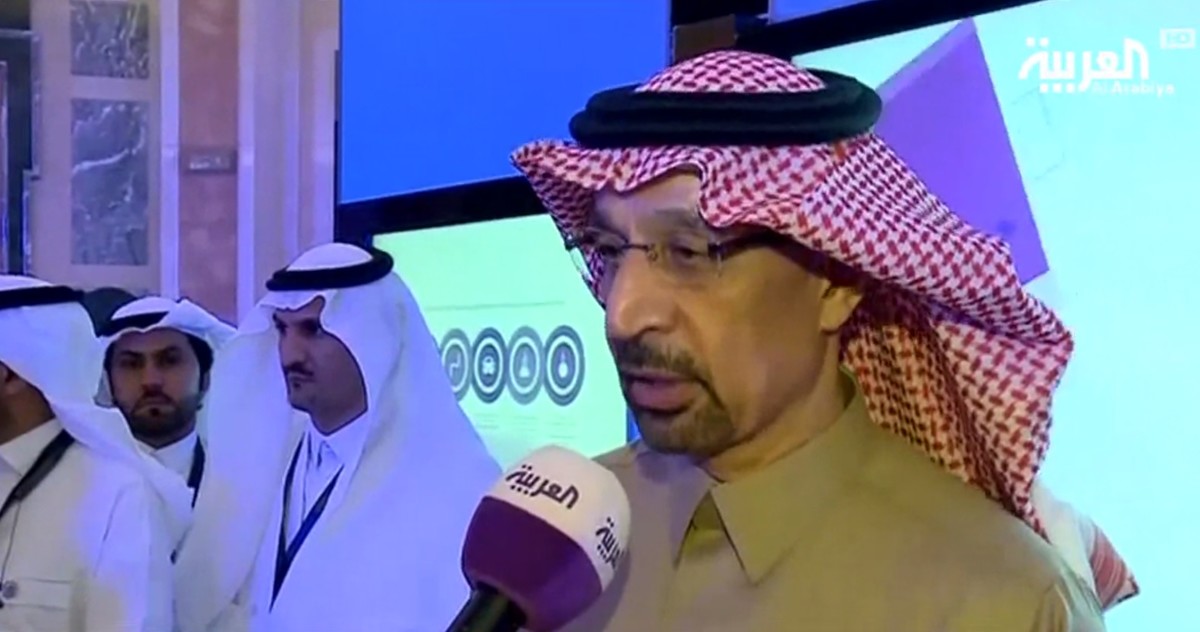
13:30 - More details are emerging about the sheer scale of Saudi Arabia’s National Industrial Development and Logistics Program. By 2030, the program aims to stimulate private sector investments worth more than $450 billion, according to documents circulated today in Riyadh. The plan spans four sectors: Mining, industry, logistics and energy.
13:15 - Arab News reporter Frank Kane gets a look inside the “Deals Room” at today's conference...
Inside the “deals room” at #NIDLP Ritz Carlton Riyadh #KSA @arabnews pic.twitter.com/DKw4Gn46Mb
— frank kane (@frankkanedubai) January 28, 2019
12:45 - Aabed Abdullah al-Saadoun, deputy minister of Energy, Industry and Mineral Resources says the Saudi Arabian government will spend $27 billion in 2019 and 2020 as part of its industrial development programme.
--------
READ MORE: Saudi Arabian government to spend $27 billion on industry development plan
--------
#UPDATE from #NIDLP: #SaudiArabia government to spend $27 billion in 2019 and 2020 as part of industrial development programme - Aabed Abdullah Al-Saadoun, Deputy Minister of #Energy, #Industry and Mineral Resources https://t.co/4Bz3j9UZfE pic.twitter.com/Xy6RP62hmV
— Arab News (@arabnews) January 28, 2019
10:34 - "This vision embodies the national industry development program and logistics best because it aims to integrate the capabilities of state agencies in the Kingdom and attract local and global investment," Al-Amudi says.
#LIVE from #NIDLP: “This vision embodies NIDLP best because it aims to integrate the capabilities of state agencies in the Kingdom and attract local and global investment,” Minister of @SaudiTransport Nabeel Al Amudi https://t.co/uy4jWQZTKU pic.twitter.com/jxt5nV9IUp
— Arab News (@arabnews) January 28, 2019
#LIVE from #NIDLP: $800 million to be invested in #Saudi factories https://t.co/uy4jWQZTKU pic.twitter.com/VeLXhG4wJj
— Arab News (@arabnews) January 28, 2019
#LIVE from #NIDLP: Logistics contribution to GDP to increase by $59 bln by 2030 through investments worth more than $35 bln https://t.co/uy4jWQZTKU pic.twitter.com/zH2xEJoEfA
— Arab News (@arabnews) January 28, 2019
9:45 - Saudi Arabia's Minister of Transportation Nabeel Al-Amudi says that the Kingdom is working on more than 300 initiatives in the industrial development program and urges everyone to look into the program and invest.
#LIVE from #NIDLP: “We are working on more than 300 initiatives in the industrial development program” says Minister of @SaudiTransport Nabeel Al Amudi https://t.co/uy4jWQZTKU pic.twitter.com/jDPW6izg2l
— Arab News (@arabnews) January 28, 2019
9:00 - Saudi Arabia's Minster of Transportation Nabeel Al-Amudi is set to give the opening remarks at the event, followed by an introduction to NIDLP from its CEO and Deputy Minister of Energy, Industry and Mineral Resources Dr. Aabed Abdullah Al Saadoun.
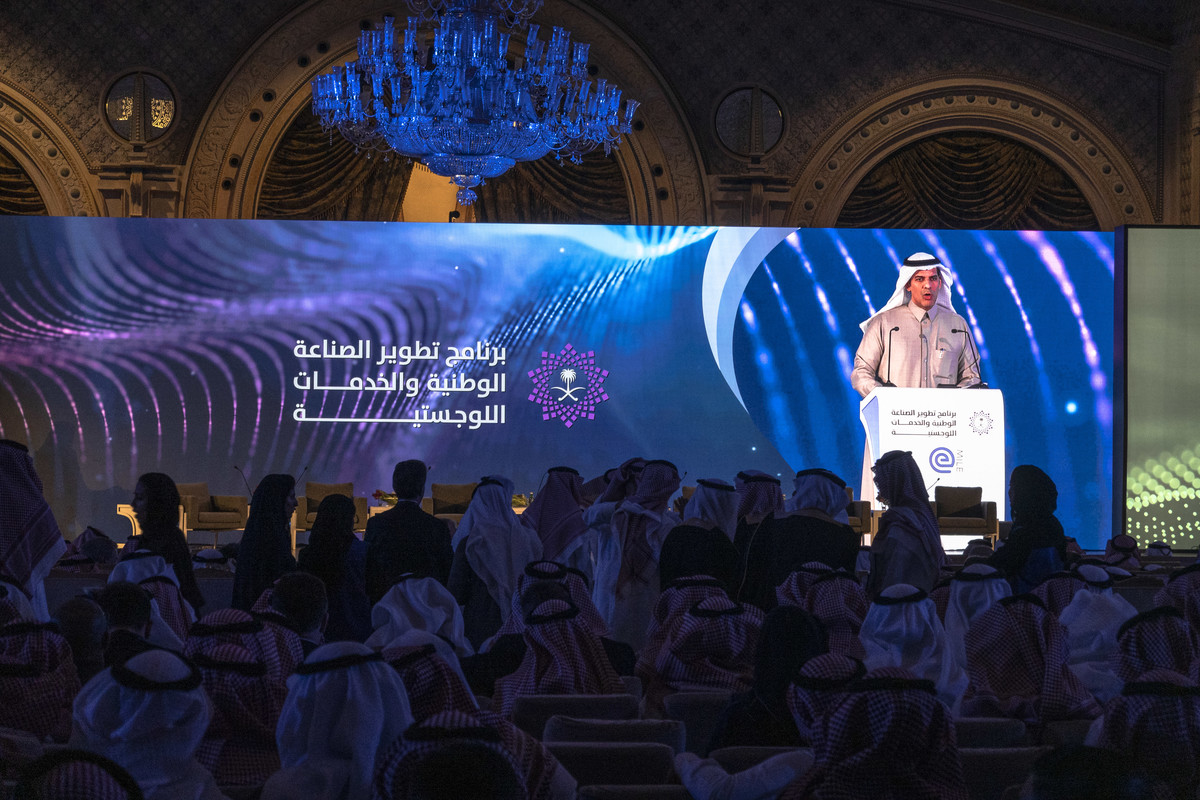
8:00 - The National Industrial Development and Logistics Program, which has the aim of attracting $427 billion over the next decade from Saudi and global private-sector investors, is set to be launched today in Riyadh. The program is a key pillar of the Vision 2030 strategy aimed at diversifying the economy away from dependence on oil revenues and government spending.
--------
INTERVIEW: Saudi Arabia open for business, says SAGIA governor Ibrahim Al-Omar
--------
Energy Minister Khalid Al-Falih said earlier that the Kingdom would announce multibillion-dollar projects to boost the industrial, mining, energy and logistics sectors. The program was “quite ambitious but it is over a 10-year period so we have got the time to do it,” he said.
“We will have a huge contribution from the private sector outside the Kingdom, but we will leave the biggest share for the Saudi private sector.”
The program is being launched at a crucial time in the Kingdom’s economic development, amid volatility in global energy markets and increasing concerns about world economic growth prompted by the trade confrontation between the US and China.
Ibrahim Al-Omar, the governor of the Saudi Arabian General Investment Authority (SAGIA), told Arab News at the World Economic Forum annual meeting in Davos last week: “Vision 2030 isn’t just for the Saudis, it’s for everyone. I think this is a golden opportunity for investors to join us on our journey.
“We’re in a massive transformation on a scale that has never been seen before. We’re changing economically, socially and culturally. We’re three years into a 15-year journey to transform and diversify our economy, and we’re doing that with such speed because we have a can-do, make-it-happen attitude.”





